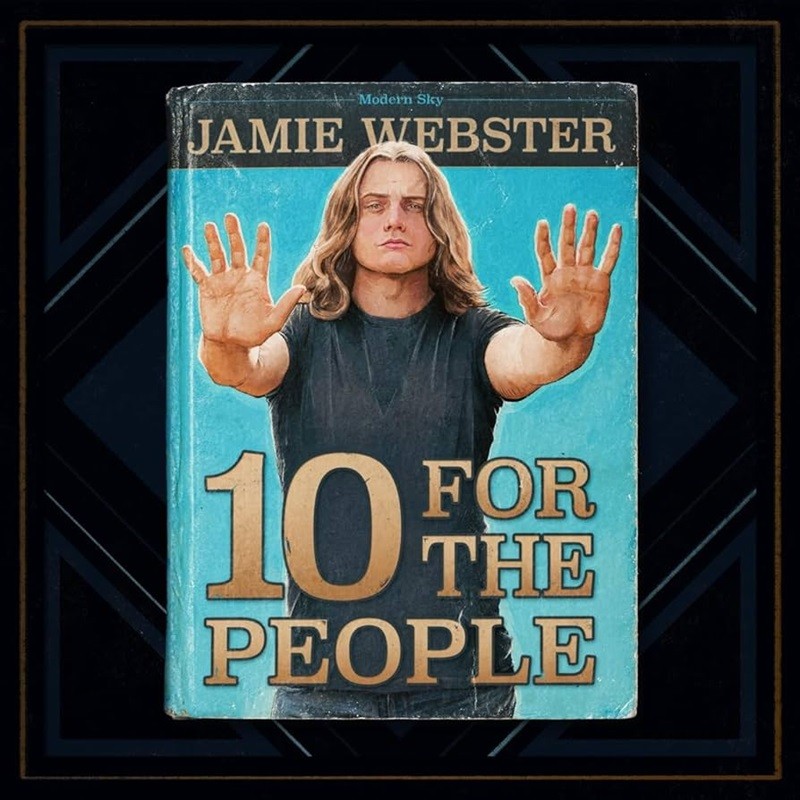
Whilst Jamie Webster might not be admitting it, this third time street politicking comes with questions of him too.
You started out playing gigs in pubs. You wanted to go where few others would, talking about the long-forgotten working class and their rights and wrongs through their own lens, doing it for the people and never afraid to face up to the tough stuff.
In the process you’ve grown as an artist and as a musician, knocking over life goals as they come – sold out arenas, Glastonbury, tunes listened to in the tens of millions.
But this is album number three, Jamie Webster, so what does it all mean?
Woody Guthrie famously carried the slogan on his guitar: ‘This machine kills fascists’, but how in the 21st century does a man with a similar natural tendency to fight for the disenfranchised go about it, when enemies are all around and so many come with smiles and lies and unofficial sponsorship?
The Liverpudlian bard’s third album, 10 For The People, comes with his least unambiguous manifesto yet, a head-on collision with prejudice, sociopathy and the utter contempt so many of Britain’s institutions have for its own citizens.
It is, he says, ‘specifically for the people, it’s brimming with stories, lessons and calls to action’, but sure enough so were both its predecessors (Moments and We Get By), so whilst the singer might not be admitting it, this third time street politicking comes with questions of him too.
It starts with a confession on two levels; opener Better Day an admission of the debt the scouser owes to the people who lifted him up, but shows also that the journey from folk strummer to electrified rock and roller is almost complete. With lyrics rooted in the notion that everyone counts, the union rep and volunteer worker who also join him amongst the prose are grassroots heroes given their due.
On what else goes and doesn’t with this territory, poking the establishment bear is a given, Voice Of The Voiceless a rallying cry for the disenfranchised, whilst Something To Eat is surely one of the first songs post the nightmarish referendum to face up to the public lies uttered about it before and since.
Even if in the aftermath of that it felt like hope and optimism were a foreign land, down the road it’s here in doses big enough for the masses to swallow, the from-the-lungs refrain of Sing Your Tears ready for Row Z, whilst Looking Good offers a hand to misshapes everywhere and Fickle Fran, complete with a cameo from Billy Bragg, celebrates the grifter’s prayer with a string section and smiles all round.
But back to what it all means, because it has to mean something. Closer How Do You Sleep at Night? abandons the orchestra and housing scheme bonhomie to spit facts, about how men sell the bombs that kill and then dehumanise and exploit the wave of people fleeing their ordinance, all for profit and politics.
Put this way, it’s the most truth-to-power Jamie Webster has ever spoken, and in consequence also the first act of clear transcendence in his career. It’s a statement, a line, a dot on a map that now can clearly be seen and heard by everyone, even if it’s not visible to the naked eye.
There was far more riding on 10 For The People than probably even a former electrician turned force to be reckoned with ever realised, but in escaping being trapped by yourself, it’s the sound of someone on the verge of discovering their true calling.
Woody knew what his weapons could do; it sounds like Jamie is waking up to those possibilities too.



